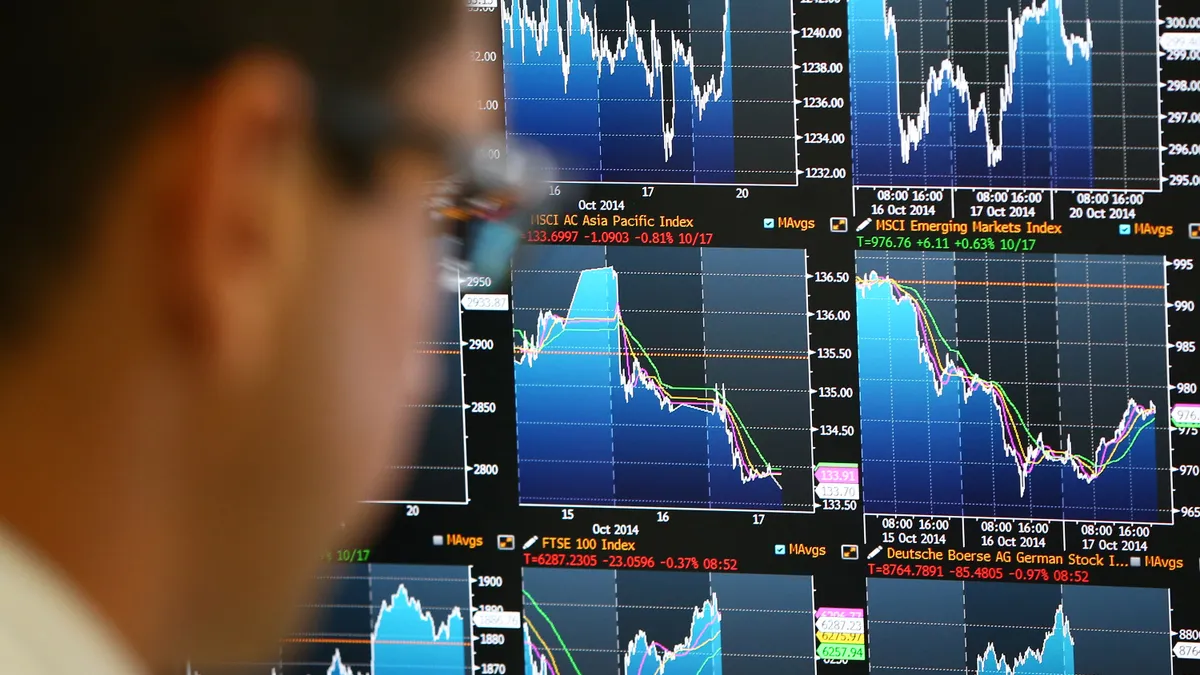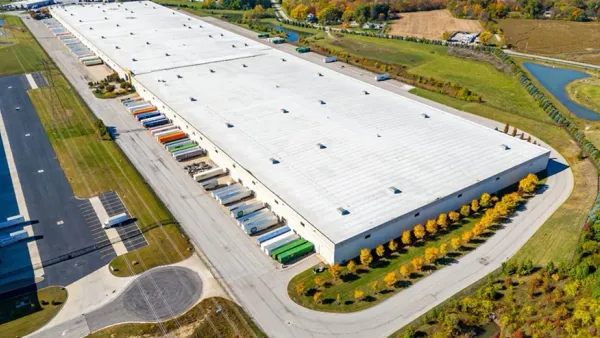Dive Brief:
- Seven in 10 manufacturing executives believe an extended trade war will lead to a global recession, with 61% saying the recession is likely this year, according to a LevaData survey of more than 100 manufacturing and production executives across automotive, consumer goods, life sciences, industrial and tech industries.
- Survey respondents expected the electronics, automotive and agricultural industries to "bear the brunt of the trade war," LevaData said.
- Nearly half of respondents said tariffs mean higher costs for goods, services, parts and labor, although they were about equally split on whether tariffs in the long term will lead to economic growth or decline.
Dive Insight:
Fears of an impending recession from LevaData survey respondents fall in line with the Institute for Supply Management's manufacturing index, which shows five consecutive months of contraction. December's reading was the lowest since June 2009.
A Bloomberg analysis, however, paints a rosier picture. It puts the chance of a recession within the next 12 months at just 26%, though the analysts acknowledged, "forecasting just when a recession will begin is notoriously difficult."
The uncertainty surrounding a possible recession requires supply chain managers to tread cautiously and firm up risk management strategies.
On the procurement side, executives can pay attention to signals of an economic downturn, such as softening prices and fluctuations in the usual business cycles and keep communication with suppliers open and honest. Supply chain managers can keep tabs on purchase orders to ensure inventory matches the volume of business. Careful forecasting and demand planning are critical.
Industries that bear the brunt of the trade war will need to proceed especially cautiously to avoid risks to their business in the case of a recession.
The fourth list of tariffs was particularly damaging to the electronics industry. Technology products composed more than half of the tranche valued at $300 billion, although ultimately duties did not take effect on all of the products on the list. A study from IPC, which represents the electronics manufacturing industry, found 70% of U.S. electronics manufacturers reported lowered profit margins in 2019 citing the U.S.-China trade war.
Best Buy told analysts on an August earnings call it had pulled forward inventory, adjusted sourcing and vendor strategies and analyzed SKU assortment in an effort to mitigate cost increases resulting from tariffs.
The agricultural sector as well has taken a hit from the trade war, as retaliatory tariffs from China affected export supply chains. U.S. soybean exporters to China lost significant market share to Brazilian exporters in the height of the trade war, although the signing of a phase one trade deal may change the equation.















